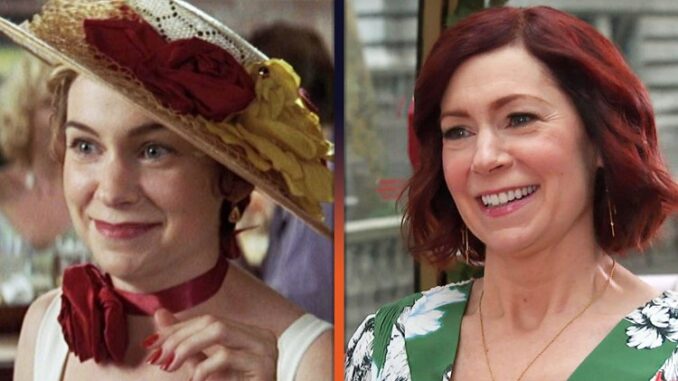
The wait, sometimes, is as much a part of the story as the triumph. For decades, Carrie Preston has been the kind of actor you know, even if you couldn’t always put a name to the force she brought to the screen. She was the one who, in a single scene, could steal a show, leaving an indelible mark long after her character had exited the frame. Now, at 56, the stage is finally hers. “Elsbeth,” her own eponymous series, isn’t just a new show; it’s a culmination, a spotlight long overdue, and a resonant testament to perseverance, undeniable talent, and the quiet revolution of a late bloomer in an industry obsessed with the ephemeral.
For years, Preston was the queen of the guest role, a supernova in a supporting constellation. She arrived on screen with a vibrant, often off-kilter energy that defied easy categorization. Who could forget Arlene Fowler, the fiery, superstitious, and fiercely loyal waitress from “True Blood,” who navigated the supernatural chaos of Bon Temps with her wild red hair and pragmatic wit? Or Athena, the brilliant, morally ambiguous hacker from “Person of Interest,” who could pivot from charming to terrifying with a flick of her sharp intellect? Each role, no matter how brief, was infused with a unique spark, a lived-in authenticity that suggested entire worlds existed within her characters, just beyond the edges of the frame. She wasn’t just playing a character; she was embodying a life, making you wonder about their past, their secret dreams, their grocery lists.
But it was as Elsbeth Tascioni, the eccentric, observant, and disarmingly brilliant lawyer in “The Good Wife” and “The Good Fight,” that Carrie Preston truly found her signature note. Elsbeth was a walking contradiction: a whirlwind of brightly patterned dresses, seemingly distracted observations, and an uncanny ability to disarm her opponents with her unassuming demeanor, only to deliver a knockout blow of legal insight. She moved through the high-stakes world of Chicago law like a human pinball, yet her seemingly scattered thought process was a finely tuned instrument of detection. Preston didn’t just play Elsbeth; she became her, making the character utterly unique and utterly beloved, earning an Emmy for her efforts and leaving audiences clamoring for more.
The transition from scene-stealing support to full-blown lead at 56 is not just a personal victory for Preston; it’s a quiet challenge to Hollywood’s entrenched narratives about age, particularly for women. In an industry that often valorizes youth and relegates seasoned actresses to matriarchal or supporting roles, Preston’s ascendance to leading lady status is a breath of fresh air. It suggests a growing appetite for stories led by women who bring depth, experience, and a nuanced understanding of life to their characters—qualities that only deepen with age. Her presence on screen isn’t about chasing fleeting trends; it’s about the steady, undeniable power of craft perfected over years.
“Elsbeth” isn’t just about a character; it’s about the actor who embodies her. Preston’s journey illustrates that talent, when nurtured with patience and perseverance, will find its moment, even if the path is circuitous. It’s a testament to the fact that “finally” doesn’t diminish the achievement; it amplifies it, adding layers of hard-won wisdom and quiet triumph. Her show is a celebration of the unique, the overlooked, and the underestimated, mirroring the very qualities she has brought to her characters throughout her remarkable career. At 56, Carrie Preston isn’t just stepping into a leading role; she’s stepping into her rightful place at the forefront, a beacon for anyone who believes that the best stories, like the most enduring talents, only get richer with time.
